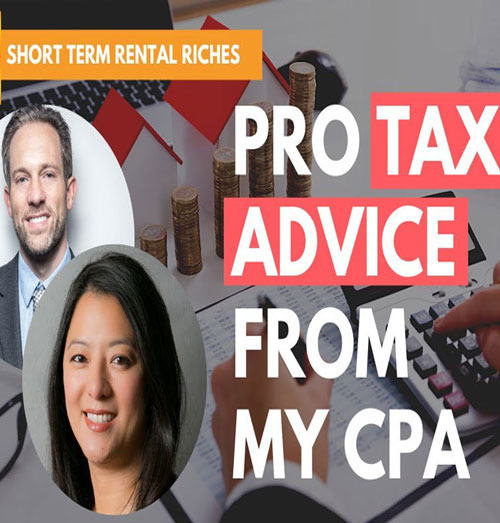How to build an Airbnb Business: Lessons from one of the industry’s leading experts (Jason Hartman)
Before we can determine whether or not a real estate investment will be a successful one we need to first look at the bigger picture.
We need to know and understand the demographics and fundamentals driving each market
Once we know what real estate markets are ripe for investment it drastically helps to narrow down our options.
With a market decided, we can go hunting.
But it’s not always easy to determine what makes a “good” market for investment.
This comes with practice, education, and experience.
So when I’m doing my market research I turn to advice from some of the industry’s leading experts.
This week we had the luxury of interviewing someone who’s education has been a big influence in my life.
Education that has saved me from putting my money in real estate markets that were too risky (and that’s evident now as prices fall).
I’ve gone to several of his conferences in person and been listening to his podcast for years soaking up all of the knowledge that he shares so freely and wisely.
He is, arguably, one of the industry’s most recognized and respected thought leaders in real estate; Jason Hartman.
Jason is the host of the popular “Creating Wealth Real Estate Investing” Podcast. With almost 2000 episodes and years of experience under his belt, Jason brings a ton of value.
Stay tuned as we dive in deep to:
- Why money is still “cheap”
- What makes a market risky
- Examples of risky markets where you don’t want to invest
- Which markets are ripe for investment and why
- What it means to live a “Rich” life
You can find out more about everything Jason has to offer by visiting his website here.
Need help managing your short term rental and you don’t want to go it alone? Shoot us a message here and we’ll see if we can help.
Are you enjoying the podcast? Please subscribe, leave a rating and a review, and share it! This helps us reach others that may find the info helpful as well.
Get a copy of my 12 proven house rules to protect your property from almost every negative situation (highly recommended)
You can find all of our links here including our recommended resources, short-term rental playbook, Instagram, and more!
Click Here to view TranscriptWelcome to short-term rental riches. Will discuss investing in real estate but with a specific focus on short-term rentals. Quick, Actionable items to Acquire, Manage and Scale your portfolio. I’m your host Tim Hubbard.
Tim: Welcome back everyone to the short-term rental riches podcast every week we talk about invest in real estate, but with a specific focus on short-term rentals and a big part of investing is making sure we know the fundamentals and today we have a great guest with us. Someone that I’ve been following for a long time and that’s Jason Hartman. Welcome to the podcast Jason.
Jayson: Hey Tim it’s great to be here.
Tim: We’re excited to have you. You’ve got a lot of just industry wisdom and you’ve been investing in real estate for a long time. Do you mind just giving our audience, just a quick elevator pitch snippet about your background.
Jason: It’s been really my only major career in life. I got my real estate license when I was 19 years old, and my first year of college and I bought my first property actually from a client about six months into my career. So, I was 20 years old, owning a rental property while still living at home. Kind of kind of did it backwards from the way most people do it. Then I was in the traditional brokerage industry for years. I was one of the top RE/MAX agents in the world. Purchased a lot of rental properties over those years and then I purchased a real estate company and I ran that for eight years, turned it around. It was a failing company, turned it around, sold it to Coldwell Banker. And as I was negotiating this like one-year long deal with Coldwell Banker, I started another business which was the business of helping investors buy properties Nationwide and I’m still in that same business. And working with investors has always really been my first love. So now my business is work with 100% Real Estate Investors. We help them buy properties, and build portfolios Nationwide. We don’t work with anybody who just wants to buy like a house for themself, you know, it’s on a 100% percent investor business and in doing that we analyze different markets around the country. We’ve looked at international markets so far, we have not been that tempted to dive into them although you know, always something to consider. And it mostly our clients are buying long-term buy-and-hold rental properties. We have dabbled in the short-term rental market, but it’s never been our main thing. And you know, of course, you know this from listening to our podcast but just so your audience knows too. Yeah, and that’s that’s kind of the, the summary. I also have a software company called real estate tools, which helps people evaluate real estate deals, and then manage them on an ongoing basis.
Tim: Well, you do. You have a ton of experience Jason and software. We talk about software all the time on this podcast because it’s a big part of helping us manage properties, remotely and know something, that’s something that you encouraged as well, even with the long-term rentals. So, I before we talk about short-term rentals, I mean short-term rentals are real estate and and so they’re totally related and you have a unique way of breaking down real estate markets into 3 cyclicals, linear and hybrid. And do you mind explaining that just a little bit for our audience.
Jason: Yeah, absolutely. So, in a country as large and diverse as the United States, there are almost 400 metropolitan areas. There are over 3100 counties and there are over 9,000 cities so it’s a big country and it drives me crazy when I hear people talk about the housing market or the real estate market, is if it’s like one thing. You know, I don’t know where the housing market or the real estate market is, if it’s in Miami or LA, or Seattle, or Memphis, or, you know, motions, or, or Boston, or what, right? The fact is all real estate is local and around the world. It’s the same thing. So, what I’ll share right now is a way for people to break down the entire country and the entire world into three basic types of markets because these three types of markets do act differently and well, one is going poorly, the other might be going very well and it can really surprise you. So just to understand things, the three types of markets are really important and the first type is the linear Market. These are the markets we like to invest in, there pretty boring. They’re characterized if you’re looking at a chart or a graph of appreciation levels over time, they’re pretty slow and steady, they’re pretty boring. Nothing too exciting happens. And for this reason, they don’t really make a lot of headlines. They don’t get in the news, very much. But they’re characterized by lower prices, lower land values, and good cash flow. And they also many times tend to be, right wing leaning political markets. Why is that important? Why would I even mention that? Well, it’s important because in a right-leaning political environment, landlords have more rights, and tenants are expected to fill their contracts. Where is if you’re looking at a left-leaning environment like California or pretty much the whole west coast of the United States or the northeastern markets, then tenants have the upper hand and if they don’t pay rent and you have to evict them, it’s very difficult to do so. So, we like to invest in markets that are friendly to our cause as landlords, and also markets that perform very well.
The second type of Market is the cyclical market. Now, these are the markets, if you’re looking at a chart of appreciation over the time, they look like a roller coaster. Big Ups. Big Downs. Absolutely crazy. These are the markets that get all the attention. They’re newsworthy, there the high-flying markets. I grew up in Los Angeles, California. That is most definitely a cyclical Market. They’re much more expensive and they tend to have very bad cash flow and they tend to be left-leaning politically, so they’re not landlord favorable markets.
And then the third type is the high women bird market, which as the name would imply. It’s just in between the two. Okay? So, let’s go over some examples of these and we’ve got a chart up on the screen here that shows Memphis. This is a market that I’ve invested in for many years. You have property there as well. And this is a very linear boring market, like nothing too exciting happens in Memphis okay, ever since Elvis died, I guess, right? So, it’s just slow and study, it’s got good, cash flow, large renter population, it’s the logistics Capital, the US. It’s got Federal Express there. And another example would be Indianapolis. This is market. We’ve been involved in for many, many years, slow, study boring, good cash flow. I’ve owned a lot of properties here over the years, great market, not too exciting, except for the Indianapolis 500, okay? But here is a cyclical Market. This is where I grew up Los Angeles California and you see on the chart here, the appreciation and depreciation is all over the board. Looks like a, you know, it looks like a roller coaster and so ups, downs, and what happens in these markets is if you get lucky, or if you’re somehow sometime ingenious and can time the market, you can really hit a homerun in terms of appreciation, but it can also go very badly for you if you get it wrong. And it is very hard to predict those appreciation depreciation Cycles.
So, for our investors and for my personal portfolio, I like things that I can just invest in, put my money on it and let it ride and create wealth over time. That’s what investing is. It’s not speculation. It’s not gambling. It’s a pretty conservative approach, and it’s very reliable. So that’s why I like it.
Tim: Right, right. Yeah, awesome explanation. And something, I’ve Incorporated in my own personal investment philosophy. In fact, I sort of. So first of all, short-term rentals exist in all these three different Market types, right? Of course. Yeah, and there’s some other fundamentals with short-term rentals, right? There’s what we need to know why people are going to stay there. And so, people are visiting all these cities. A lot of times when people think about short-term rentals, they think of the Los Angeles, they think of the Miami, they think of Seattle. And they don’t think of the places like Memphis and Indianapolis. But those are sizable cities that have lots of people visiting. And one of the things that I found interesting is that you can invest in these linear markets in properties that makes sense such as long-term rentals. But they can also make sense as short-term rentals.
Jason: Yeah, they think they can do both. So, if the economy gets really bad, I mean, the first thing people cut out is vacation right, because that’s very much optional. So, they’ll tend not to spend money on that. If money is tight, if we’re in a recession and, you know, in a, in a linear Market, you’re pretty much always be able to turn that property into long-term rental and the numbers will be pretty good. Where is in Los Angeles, you’re not going to be able to do that in a cyclical Market. By the way, I should give your listeners examples around the world of cyclical markets. So, in the US they’re pretty much the whole west coast of the US. From from San Diego to Seattle and everything in-between is pretty much cyclical. The expense of Northeastern markets, Washington DC, New York, Boston cyclical, right? expensive markets. Where I live, Ilive live in Palm Beach Florida and just south of me is Miami. So, Miami and Florida would be a very much a cyclical Market. However, Florida has gotten a special pass because during the covid era, everybody really fell in love with our government here in our governor De Santis. So, a lot of people have moved to Florida. The other thing that characterizes linear versus cyclical markets is that linear markets tend to be much more business-friendly. Whereas cyclical markets tend to be business unfriendly. So, businesses are leaving those markets and they’re going to the linear markets in most cases, most of Florida’s linear are hybrid, but it has changed a bit because of all the migration, after the covid lockdowns ended around the world though, let’s think about cyclical markets. Okay, around the world. Just think of all the trophy markets think of London, Paris, Dubai, Hong Kong cyclical markets, okay? Very expensive trophy cities that everyone’s talking about paying attention too, but most of the country in the US and most of the world is a linear Market. Okay. The vast majority of real estate is in linear markets, whether it be in the US or around the world. So that’s just important to understand the cit, the famous cities tend to be cyclical.
Tim: Yeah, another thing that’s interesting too is the cyclical markets like you said a lot of times they’re less landlord friendly. I’m from California myself as well, originally and one of the things when it relates to short-term rentals is that a lot of times these less landlord Friendly Markets are also more strict with short-term rentals. Yeah, I’ve just found a, that’s true. And so, we have people moving to more affordable places that also happen to be a little more landlord friendly. One thing Jason I we see these lists all the time like best markets to invest in how
Jason: Those lister so amateurish. You know,
Tim: They totally are.
Jason: I always read those things and they’re just so shallow. It’s, you know, the media does not understand investing don’t expect to look at a list and get the idea or listen to a sound bite on CNBC. I mean, you’ll just make so many mistakes, you know, it’s ridiculous, but sorry, what we’re going to say about that.
Tim: No, no, I agree. I mean a lot of times the lists are the exact markets that you’re trying to deter people away from and with short-term rentals it like will see this list very often, for example, it says best markets invest in short-term rentals. Miami, Los Angeles, Seattle, and all these places if you look at it, there also that most highly regulated. So, while they might have the highest average nightly rates, and might be because they’re only allowing, you know, who knows? Like 1,000 properties in that market, so the supply is limited. So how do you go about sort of deciphering between good and bad data with so many sources out to choose from these days.
Jason: Well, you know, look, I mean, I’ve been doing this so long that it’s just sort of second nature now. But I’d say for people who this is not your main thing and you’re not going to spend you know years and years studying it like I have, get a good advisor okay, listen to my podcast. Check out my YouTube channel you know just look up Jason Hartman and you’ll find all our stuff. I mean this is what we do. We go really deep on this stuff. So, you don’t have to write. That would be the first thing but just understand that there are a lot of crosscurrents, right? Like I remember seeing one of those lists years ago and this was maybe, I don’t know, 18 years ago. I saw some article on. I think it was Yahoo or Money Magazine or one of these completely shallow sources, okay. It was talking about the lowest and highest rents and it said that the lowest rent of the markets that they surveyed was Oklahoma City. And the article basically said, you wouldn’t want to be a landlord in Oklahoma City. The place you’d want to be a landlord is Los Angeles because it has the highest rent. But what it didn’t tell you is it also has the highest prices, what’s important is the ratio, we call it the RV ratio, the rent to Value ratio, okay? Ideally, you want to have your rent to Value Ratio somewhere around 1% per month. What does that mean? If you pay two hundred thousand dollars for a property, you want to get about 2,000 a month. Now, it’s pretty hard to do that lately, you know. But if you can get .8 or .9 or even as low as .7, you’re okay. All right. But in Los Angeles, you’d be lucky if you get like .4, okay, you know, you’ll pay a million dollars for a property. You’ll get 4,000 a month that’s .4, okay. So that’s an example and that’s why that ratio so important not to mention the landlord friendliness aspect and all of the other things.
Tim: Yeah, that’s that’s one of the things that I’ve, you know, I always look at as well as how much money I’m going to get back based on the purchase price and that’s one of the reasons I went to short-term rentals but of course, short-term rental rents are not as stable as long-term rents, their fluctuations like you said, when we’re in a bad economy, people cut out vacations. So how would you say that short-term rentals are affected by these markets? I mean, we have markets like managing Columbia for example which is outside of the US and it’s being flooded with people because of It’s affordable. It’s been flooded with people from the US, they can work remotely and so that’s been a huge sort of wave especially after covid. How do you see that plane into these three different types of markets that and maybe as it relates to short-term rentals?
Jason: Well, you know, be careful because if people actually end up moving to Medellin like, you know, I I totally noticed this trend in the post covid lockdown, the first time it happened, all the short-term rentals just were fully booked they could command really high rates because what people would do is they would go and live in a short-term rental for a month to go, find a house in a new city because they wanted to leave the urban areas and move to the suburb in areas, which is, by the way, I have to Pat myself on the back, I predicted this in February of 2020 before anybody was talking about it, I said that would happen and it did, it’s exactly what happened because in high-density Urban environments. Not only are those markets, really expensive and if you can work remotely, your arbitrage, your geo arbitrage, your high paying job with a low-price city to live in, right? So why would you live in a one-bedroom apartment in New York City and pay 4500 now maybe six thousand dollars a month for that tiny little apartment versus you could live in a three-bedroom two-and-a-half-bath, brand new house with a two-car garage in a Suburban Market with a yard. You can do the same work from either place, right? So, one of the things and you’ve heard me say this, I’ve been saying on my podcast since 2012 is geography is less meaningful than it’s ever been in human history. Geography is less meaningful than it’s ever been in human history. Now look, geography still matters. It just matters a lot less than before. I mean, think about it. If you were living in the olden days, go back even to caveman days, right? You needed your cave to be near food and water, okay, that geography was like really important. And you know over the years, that’s always been true. And that’s what caused this mass migration to urban areas in the industrial revolution because that’s where the jobs were, right? Geography was very meaningful, okay, you had to live in a city and then after the in that sort of the post-industrial revolution, in the information revolution because people were exchanging ideas, they were mostly doing that in person, right, until the Telecom Revolution came, and then they were doing it electronically and digitally. But what’s interesting about it is, we have the technology to do what we’re doing right now. Essentially, back in the early 2000s, yet covid forced the adoption of it. So, Zoom was their Skype was their right, not a new technology but people really weren’t forced to adopt it. You know, there’s an old saying necessity is the mother of invention. Well, these things weren’t invented because of the necessity, they just started to be used more widely and accepted. And so now that people can work remotely, they’re taking advantage of that, you know, long answer but you know, you typically rent a place for a month in the city. So, you’ll get a short-term rental and then you’ll buy or rent a permanent place, so that changes the demand equation. So just be careful of that. I would say be mindful of it.
Tim: Yeah, I think there’s a lot of that, you know, testing out a new market is just an easy way to do it now with all the short-term rental options, myself, and a lot of my friends, we’ve kind of been living this lifestyle for a long, long time. And so, for us, or for digital Nomads or what you might call the remote worker these days which could be someone for many level profession, you know, someone that’s backpack into someone that’s making millions of dollars a year. One thing that we’re seeing with short-term rentals is that the average reservation length is continuing to get longer. So, for are just with Airbnb, for example, 20% of all of their reservations or for a month or longer and they’re still getting longer. And so, I’ve sort of seen or, I like to invest in markets that have the good fundamentals but that also have the most amount of reasons for someone to want to visit that City for short term rental I think that makes it a little less risky. But what would you say to someone that’s looking to invest in a market? Or what do you think about the idea of maybe the normal one-year lease and three-night short-term rental stay, sort of like merging? Do you think that that’s going to continue merging and
Jason: I don’t know what you mean by merging, but the thing your kind of alluded to but didn’t quite say is mid-term rentals. But yeah, you know there’s there’s always been a thing of traveling nurses, right? And there are websites that cater to this and Airbnb, I know does it a little bit too. But this, this whole idea of like a mid-term rental. I guess that means different things to different people. To me, it might mean, like, three months, Okay. Maybe one to three months, I don’t know what does it mean to you? Is that a mid-term rental?
Tim: I would say over 30 days because a lot of times you’re not regulated as a short-term rental and pretty much all the cities and in the US if you’re over 30 days.
Jason: Right? Right, yeah. So, you know that’s another interesting Trend and you know I think people have just discovered a new found freedom and they want to use it. They want to just experience some different cultures and different places and you know, I think that’s great.
Tim: So yeah, Jason a markets are constantly changing. We got to keep an eye out on all the demographics and how people are living and working where people are moving to. I think one of the things in today’s market that’s may be intimidating people are the prices of properties and everyone thinks properties are really high. And now we also have interest rates that are really high but one thing that a lot of people don’t consider is inflation and you may be better than anyone explain inflation just really well. So, do you mind breaking that down for us and how it relates to real estate.
Jason: Sure, sure. So, on the screen for those watching on video, I put up our logo for a strategy that I created many years ago called inflation induced debt destruction. I actually trademarked this and it’s a technique that basically allows people to borrow money at the value of today’s dollar, but pay it back at the value of tomorrow’s dollar, and that doesn’t just happen to be a dollar, it can be any currency unit. It can be a peso, a Brazilian real, Euro, Yen. It doesn’t matter, right? It’s just a concept of inflation. And this is the hidden wealth creator with income property that is so great. Now, the US has a very special real estate market because of the fantastic financing. After the Great Depression in the 1930s, the government was looking for some solutions to pump into the housing market and they created a whole bunch of programs and entities, not the least of which is Fannie Mae Freddie Mac. So, we have the secondary mortgage Market in the US that allows for these beautiful, wonderful, incredible, 30-year fixed-rate loans, okay? So that’s inflation induced at destruction. But before we go into that into much detail, I want to just explain another aspect of inflation and that is just the more, maybe the simpler aspect of negative interest rates. So basically, if you can borrow money at below the rate of inflation, you’re getting paid to borrow that money right out of the gate, okay? So, you know, now inflation has been really high in the US lately unusually high for the US world. And at one point, it got to about 9% officially, that’s the official rate. The official rate is determined by the Consumer Price Index, the CPI, and that is a complete lie. I call it the CP lie, okay? Because that’s what it is. It’s manipulated through waiting, substitution and and danik indexing and we don’t have time to go into all that, but even if you agree with the CPI and think it’s accurate, that’s fine. You know, if inflation is 9% yet, you can get a 30-year fixed rate mortgage at 7% right there, you’re getting paid 2% to borrow because you’re paying the money back and cheaper dollars and borrowing them at the value of today’s dollars. So, that’s a beautiful beautiful thing, but one of the things that happened to millions and millions of people throughout the last several decades is they actually implemented this inflation induced debt destruction strategy, unknowingly and it made a lot of people very, very wealthy. So, I’m going to put a chart up on the screen and this is going to be pretty mind-blowing to people for those who are not watching this, will just explain it to you in audio format, but this is a real-life example and I’ll just go through it super quickly, okay. In 1972, one year after Nixon took us off the gold standard where Dollars were no longer tethered to any real asset. It was really Fiat money and hear that term thrown around by gold bugs and Bitcoin people and so forth and Fiat, the word just means by Authority, or by decree, right? That’s all it means is, you know, we tell you a dollar has value, so you have to listen to us, all right, that’s basically what it is and the typical house in the US was about eighteen thousand dollars. So, if you went and got a mortgage on that house and borrowed 80%, you’d borrowed just over 14 thousand dollars. Back then in 1972 the mortgage rate was a just over 7% and that works out to a payment of 101 dollars per month. That’s what the check says $101. But by the time you have some inflation happen and you fast forward 12 years to 1984 down here that dollar that you borrowed in 1972 is now only worth 40 cents. So, it’s lost a lot of its value to pay your mortgage every month. You’re still writing a check that says 101 dollars per month but the value of that check is a lot lower. It’s only forty-one dollars now, Okay. So, it feels a lot lighter to write the check for $101 than it did 12 years earlier. Well, that’s because of inflation induced debt destruction and by the end of this loan that dollar from 1972 that you borrowed, is now only worth twenty-four cents. So that monthly payment of 101 dollars is now only equivalent to twenty-four dollars. So, it feels like it’s almost free to live there. Okay? Now let’s just recap what happened here, we borrowed just over 14 thousand dollars. We paid back in what’s called nominal dollars. That means in name only it’s still called a dollar. It’s just a value of It has changed so much with interest. We borrowed about 36 or we paid back about 36,000 nominal dollars. But after inflation, attacked the value of them. They were really only worth 16,393. So, you see how we got this big inflation discount and after-tax benefits? And this is estimated because everybody has a different tax bracket obviously. We really only paid back twelve thousand six hundred dollars. Okay, so what happened? We thought we were borrowing at 7.37%. But after inflation, our effective interest rate was really 1.06% and after-tax deductions because the interest on the mortgage is tax deductible. We were Actually paying a negative interest rate of one negative One point one six percent. So, we literally got paid to borrow money. This is the hidden wealth creator with income property. You know, most people think, oh, you know, real estate’s a great investment because it Hedges inflation. You know, I bought the property for x amount of money and then I sold it for more. But really, that’s not what usually happens. Because the appreciation is mostly A result of generalized inflation in the economy. What they didn’t notice is that they were paying the debt back and cheaper dollars. They got a discount on the debt because of inflation induced debt destruction and that’s the hidden wealth Creator that’s happening behind the scenes all the time that really really makes income property. The greatest thing, it doesn’t work unless you financed the property though you got to finance it for this to work?
Tim: Yeah, no I love that. And that’s exactly one of the reasons why it’s, you know, for someone getting into investing and wanting to go internationally just if you’re not a citizen of that country, pretty much can never take out a loan. And so right there is enough reason to stay in the US and bad so thank you for that explanation. Jason you’re just, there’s so much that we could talk about. But as we wrap things up here, I want to just ask you real quickly. You know, the name of this podcast is short term rental riches and a lot of times people associate the word rich just just with Finance but it’s wondering if you have something that’s enriched your life or a habit that you have in in a lifestyle way that enrich your life but not in a financial sense.
Jason: Oh, well, you know, I would just say lifelong learning. I mean, I everybody always told me when I was a kid, you know, that I was so curious about everything and, you know, stay curious. Don’t lose that ever. Learning is a lifelong process and it really is very enriching and, you know, it usually turns into money. Yeah. So, you know, just just be engaged in things be interested in things. I think the people that live the longest and have the best lives are constantly engaged. They’re interested, they’re engaged in life, right? You know, they’re always asking questions like why does this happen? Why does it do that? You know, I have a dog so I tend to walk a lot and, you know, sometimes I’m listening to audiobooks and podcasts and so forth. But sometimes I’m not listening to anything and I’ll just listen to the birds talking to each other, especially in the morning, you know? And it’s just fascinating like these whole conversations, they’re having, you know, And I was kind of woken up to this because I use an app called Voxer a lot to communicate and one of the people that work for me years ago she was in Canada and it was Winter and so it was snowing and I sent her a Voxer message in the morning and she said, oh Jason, it’s so nice to hear all the birds and I realized I didn’t notice the birds and I thought I’m missing out on a whole thing in life here that she noticed because it’s winter and she doesn’t have any birds. All right? They all flaw’s out. You know, she picked up on that because she didn’t have it, right? I didn’t notice it because it was just the normal thing for me. Yeah. And so, notice the normal things, the little things in life that are just happening, that are just, you know, there’s a lot of meaning in these things and I think people who study and I’m no big student of it. But people, who study things like Zen Zen Buddhism are really aware of this. These kind of, like, small things there. There’s an old book that was really big years ago called chop wood carry water, and it’s just about, you know, finding meaning in just little everyday things in life, that most of us just kind of take for granted, you know, and I think that’s, that’s part of lifelong learning
Tim: Totally, and I think traveling helps us do that a lot of times too. We go to environment that’s totally different. We recognize things that maybe we didn’t recognize before. So, well Jason I really appreciate your time. I’d love to have you back on in the future. I know there’s a ton of wisdom in this episode that’s really going to help our audience to make better investment decisions with their real estate Investments. Hopefully have more time to learn and do the things they want to do. So, how can people find you? Get more information. Follow you.
Jason: Yeah, so my main podcast is called the creating wealth show and you can just look up Jason Hartman that’s JASON HARTMAN on any podcast platform or on YouTube. I’ve got a lot of great videos on YouTube. Almost 2,000 podcast episodes is the data at the date of this recording on my main show and I even have some other podcast as well and so you know just follow the work there, go to our website Jasonhartman.com and get on our you know sign up on any web form there. Get on our newsletter list. We send out some great emails with some really interesting articles and, you know, it this is all free stuff that’s available to you so just check it out. I have a lot more strategies, I teach that you know we don’t have time to talk about but they’re all there for for the taking. So, check it out.
Tim: Well, we’ll make sure to get all your information, all your links in our show notes and again, thanks for coming on and we hope to have you again in the future.
Jason: All right. My pleasure. Happy investing to everyone.
Want to get on the fast track to Financial Freedom through short-term rentals? Well, all starts with the properties you acquire. But you want to make sure that you acquired the right properties. I want to give you my e-book that will show you how to do just that. There is no charge, It’s my gift to you for being one of our subscribers. Just go to restmethods.com. That’s REST methods.com
RELATED PODCAST EPISODES















